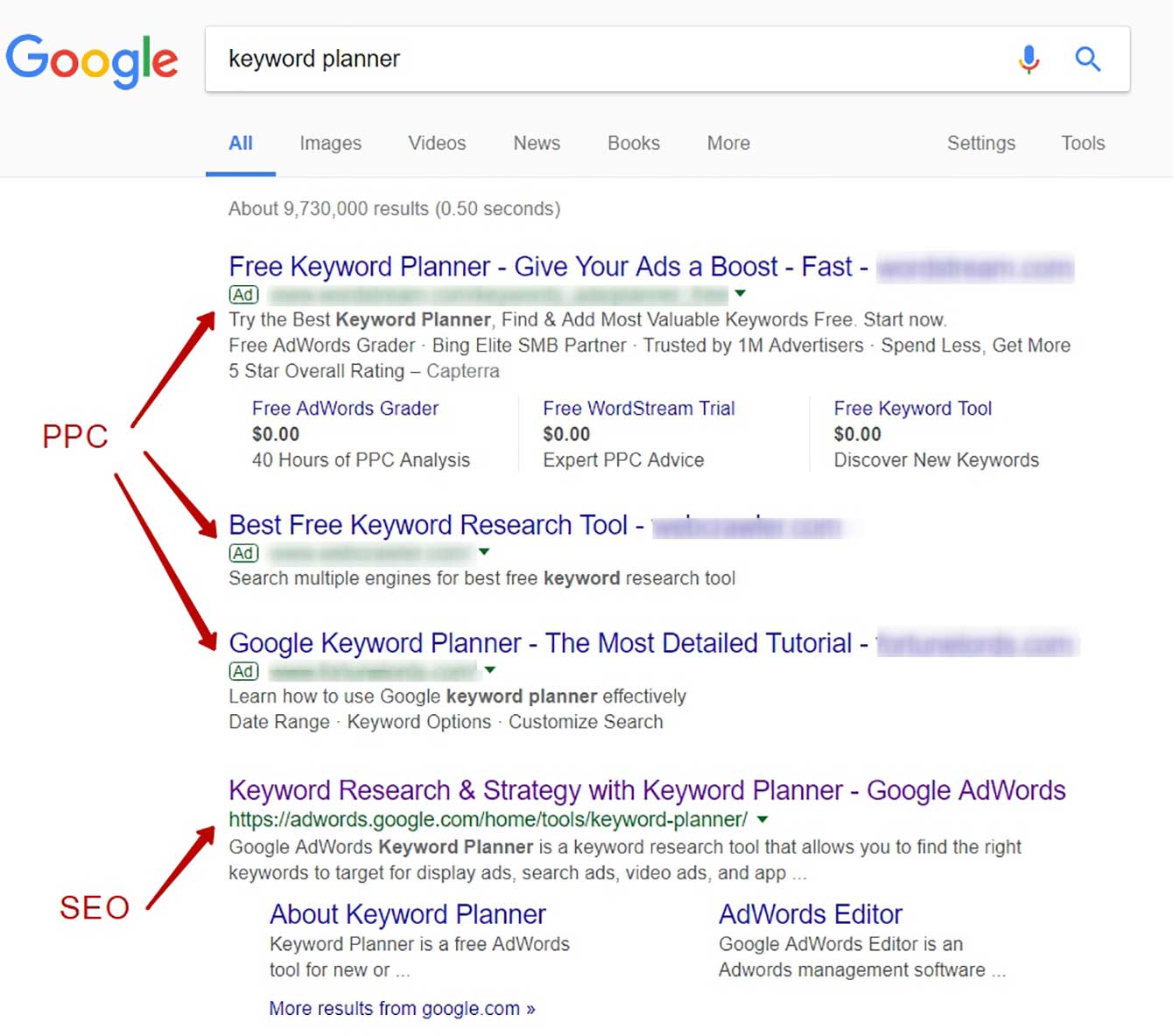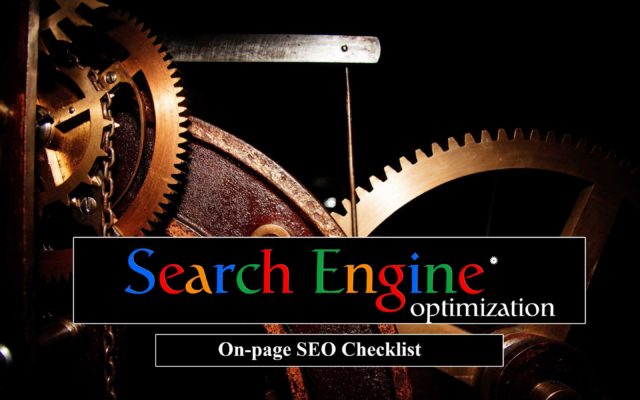SEO
SEO (search engine optimization) is the single most effective way of propelling your website (and, subsequently, brand) to stardom and recognition.
Well, before that comes a high ranking on the search engine results page (SERP), which leads to more traffic and more – no pun intended – leads! You can’t have too many leads these days, can you?
Another great thing about search engine optimization is that it’s much cheaper than a pay-per-click (PPC) campaign. Plus, it produces stronger results that last longer! Now, that is if you know what you are doing, which most people do not.
Being an online business owner doesn’t mean knowing everything but it certainly means knowing where to find a specialist when you need one.
If you have been looking for a specialist to handle search engine optimization for your website, you have come to the right place.
What Is SEO?
If we were to answer the «what is SEO?» question and give a single-sentence definition, we would say that search engine optimization is the process of increasing the organic traffic from the search engines to a website.
If there’s «organic» traffic, there must be the «non-organic» one. It does exist and it goes by the name of «paid traffic».
The difference between the two is clearly seen in the picture below:

Not to say that paid traffic is worse but let’s face it: when a person clicks on some PPC (pay per click) ad, his or her motives are quite different from the ones who see a «natural» link, which is there because this website has earned the high ranking on the SERP.
So, you’ve got two choices:
- create an ad campaign to promote your website through paid or «sponsored» links (aka PPC campaign);
- improve your website rankings on the SERP by doing SEO.
Here’s a quick comparison:
- SEO: Brings natural, organic traffic that is highly diverse but still can be converted into leads
- PPC: Brings targeted paid traffic according to the focus keyword chosen
—
- SEO: Produces gradual, long-lasting results that keep working for months and years
- PPC: Produces more or less quick, solid results until you deplete your budget
—
- SEO: Relatively cheap if not free (the main resource is time)
- PPC: Relatively expensive (especially for the «hot» keywords and phrases) – the main resource is money
—
- SEO: Requires a specialist for faster and more effective results
- PPC: Requires a specialist to optimize the ads and run the whole campaign in Google AdWords or Bing Ads
As you can see, SEO is more of a long-term investment – it doesn’t always produce quick results but when it does, you know it’s for good and you will be reaping the benefits off of those for months and years to come.
PPC, on the other hand, is more of a short-term investment. It only works as long as you pay. It may work here and now but it’s certainly not a strategic marketing tool for websites.
Moving on with the «What is SEO?» question, it’s time to talk about the processes and activities that make up SEO.
- Analytics (a lot of it, actually, since SEO is all about data)
- Keyword research (to come up with the best keywords and phrases for each page on your website)
- Basic on-page optimization (titles, tags, and descriptions + headings and URLs)
- Technical on-page optimization (making your website code SEO-friendly)
- Content (everything from SEO copywriting to content marketing)
- Link-building (making sure other websites refer to yours, via affiliate marketing)
- Social (optimizing your social media pages and providing the relevant social media buttons on your website)
On Page SEO
On-page SEO is one of the most (if not the most) important stages of search engine optimization. The reason for this is because it does not involve that much work but when done right, it produces amazing results pretty quickly.
«On-page SEO» means that all the manipulations are done mostly within your website pages (save for the keyword research) - HTML code, back-end code, content, etc.
The common nature of these manipulations is to make your website more relevant to:
- the keywords and phrases people use when they are searching for the topics your website covers;
- the rules and guidelines set by Google, Bing, and other search engines you might be working with.
In order to achieve that, SEO specialists employ a wide array of tactics, which in most cases would include the following activities assembled in the checklist below.
1. SEO Audit
Before proceeding to the actual optimization, it is essential that you assess the current situation. SEO audit does just that identifying the major problems that need to be dealt with immediately.
2. Building, Clustering and Optimizing the Semantic Core
Behind these pompous words hides a very simple process: identifying the right keywords and phrases for your website depending on its topic (topics).
There are quite a lot of specialized tools to help you out with this process. However, no tool can substitute professional experience and hunch, which is why you probably should delegate this stage of SEO to professionals.
3. Optimizing Meta Data and Meta Tags
These are not visible to users but quite visible to search engine algorithms so you want to make sure they are all neatly written and properly optimized.
4. Optimizing Tags for Images and Videos
Having proper names and descriptions for images and videos on your website allows them to be indexed by the search engines.
5. Page Content Optimization
Optimizing the keyword placement and keyword density on your website pages.
6. Scanning for Errors, Duplicate Pages, and Server Responses
Less broken links and bad server responses improves the user experience on your website and increases your page quality, which is actually an official Google ranking factor (along with trust and authority).
7. Setting Up sitemap.xml, HTML Site Map, and robots.txt
These procedures allow your pages to be indexed correctly by the search robots and crawlers.
8. Adding Social Buttons
Apart from being a must-have feature for any website, this also contributes heavily to the «trust» factor mentioned above - the more people like/share your content, the more trustworthy your website is.
9. Optimizing Page Load Speed
It’s a fact: fast-loading pages are always favored by Google.
10. Mobile Optimization
Non-optimized websites get penalties from Google.
Off Page SEO
Off-page SEO is the process of improving your website rankings on SERPs through actions taken outside of your website.
From a Google standpoint, every website should be trustworthy and authoritative.
«Trustworthy» means having good reviews and ratings from both common users and review/aggregator websites.
«Authoritative» means being more popular among similar websites.
Off-page SEO is not an entity on its own, it is always tied with its on-page counterpart for the most effective search engine optimization.
Basically, it like a public opinion but about a website. In the modern world, having a lot of friends who have only positive things to say about you is good. Same for websites - the more «friends» you have, the better.
In the off-page SEO universe, by «friends» we mean backlinks - the incoming links to your website pages.
Backlinks do not appear by themselves - one has to produce them during the process called «link building».
There are three types of backlinks:
- natural links (when someone out there links to your website without any input from you);
- manually built links (when you encourage people to share your content and they do so);
- self-created links (when you deliberately add links to your website online. If overused, it may lead you away from the white hat tactics to the black ones).
Other off-page SEO strategies and activities include:
- SEO audit and analysis (to identify the main issues);
- social media marketing (SMM) - to establish your authority within the social networks;
- guest blogging (to grow trust and the number of manually built links);
- influencer marketing (when you advertise your product or service through a popular person/community, often in a natural, native way - kind of like product placement in the movies).
As you can see, off-page SEO has a lot of advantages but it has to be done with great care and attention.
These are the tactics you’d rather avoid.
1. Buying Links
It is the worst thing you could do. No matter how the sellers may be convincing you otherwise, DO NOT DO THAT.
2. Joining the Wrong Link Directories
Trying to get your website featured in every directory (even if it has no relation to the topic of your website) is not going to do you any good either - Google easily spots the inconsistency.
3. Using «Spinned» Content
The term «spinned» refers to artificially created articles written by bots or specialized software.
You write an original article and then «spin» it producing multiple versions of the same content with little to no changes. Not good.
4. Keyword Stuffing
Google knows how many keywords a naturally popular article on the subject should have and will easily spot the unnatural keywords density.

PPC Services for Small Businesses: What’s in the Box?
There’s more to PPC services than meets the eye - so many confusing options and possibilities that only this article…
Dec 26, 2017
Search Engine Marketing
On-page SEO Checklist: How to Build a Perfectly Optimized Website Page
On-page search engine optimization is a process of internal website optimization. Like any process, it has a few steps and…
May 24, 2016
Search Engine Optimization
What Is SEO and How It Works: In a Nutshell
There is an SEO article on every other blog talking about doing it right. We, however, decided to answer a…
Nov 07, 2017
Search Engine Optimization